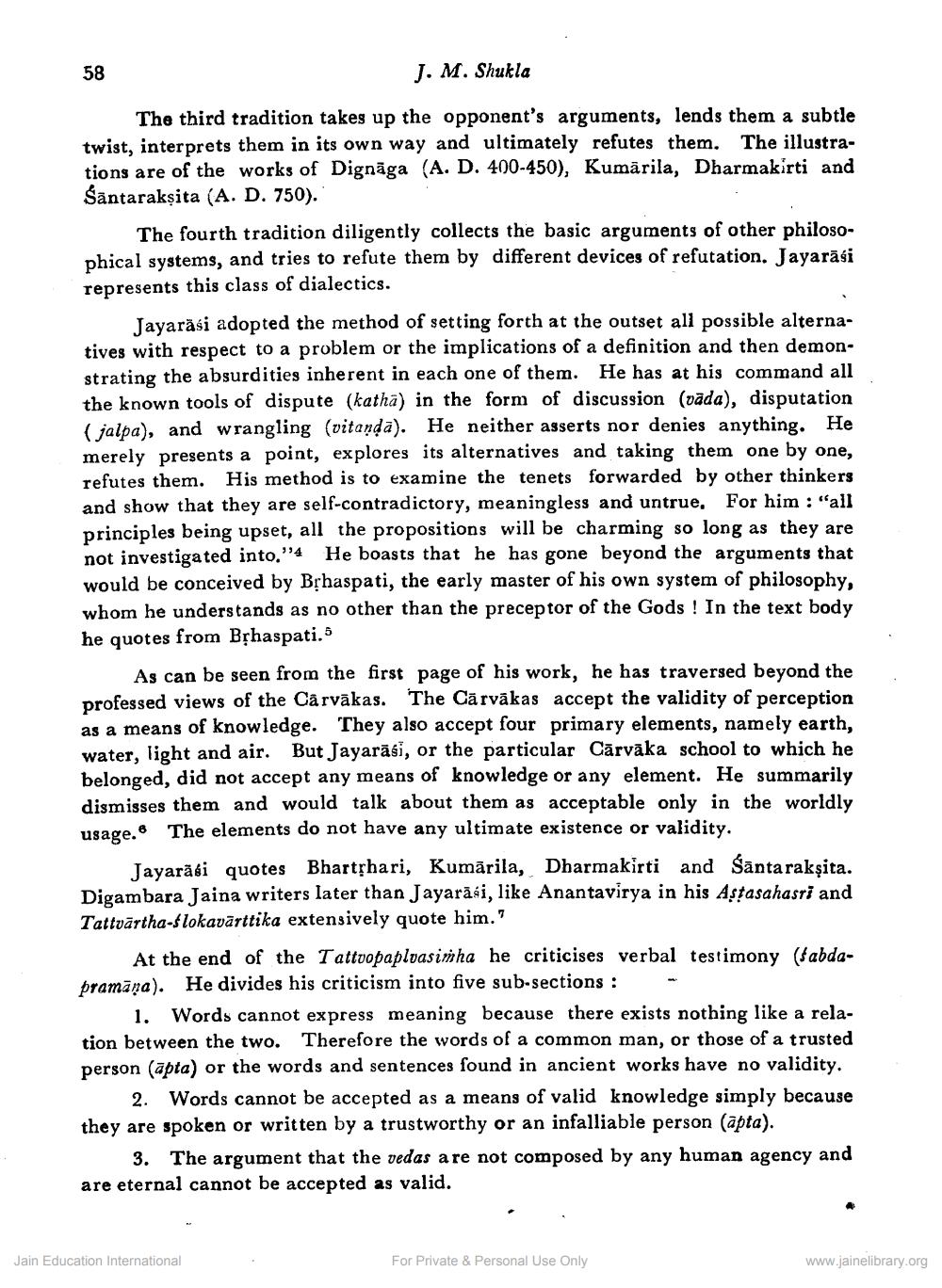Book Title: Jayarasi Criticism of Verbal Testimony Author(s): Jaydev M Shukla Publisher: Z_Aspect_of_Jainology_Part_2_Pundit_Bechardas_Doshi_012016.pdf View full book textPage 2
________________ 58 J. M. Shukla The third tradition takes up the opponent's arguments, lends them a subtle twist, interprets them in its own way and ultimately refutes them. The illustrations are of the works of Dignāga (A. D. 400-450), Kumärila, Dharmakirti and śāntarakṣita (A. D. 750). The fourth tradition diligently collects the basic arguments of other philosophical systems, and tries to refute them by different devices of refutation. Jayarāśi represents this class of dialectics. Jayaräsi adopted the method of setting forth at the outset all possible alternatives with respect to a problem or the implications of a definition and then demonstrating the absurdities inherent in each one of them. He has at his command all the known tools of dispute (katha) in the form of discussion (vada), disputation (jalpa), and wrangling (vitandā). He neither asserts nor denies anything. He merely presents a point, explores its alternatives and taking them one by one, refutes them. His method is to examine the tenets forwarded by other thinkers and show that they are self-contradictory, meaningless and untrue. For him : "all principles being upset, all the propositions will be charming so long as they are not investigated into."4 He boasts that he has gone beyond the arguments that would be conceived by BỊhaspati, the early master of his own system of philosophy, whom he understands as no other than the preceptor of the Gods ! In the text body he quotes from Bịhaspati. As can be seen from the first page of his work, he has traversed beyond the professed views of the Cârvākas. The Cārvākas accept the validity of perception as a means of knowledge. They also accept four primary elements, namely earth, water, light and air. But Jayarāsi, or the particular Cārvāka school to which he belonged, did not accept any means of knowledge or any element. He summarily dismisses them and would talk about them as acceptable only in the worldly usage. The elements do not have any ultimate existence or validity. Jayarābi quotes Bhartphari, Kumārila, Dharmakirti and Santa rakṣita. Digambara Jaina writers later than Jayarāái, like Anantavirya in his Astasahasri and Tattvārtha-slokavārttika extensively quote him.' At the end of the Tattvopaplvasimha he criticises verbal testimony (+abdapramāna). He divides his criticism into five sub-sections : - 1. Words cannot express meaning because there exists nothing like a relation between the two. Therefore the words of a common man, or those of a trusted person (apta) or the words and sentences found in ancient works have no validity. 2. Words cannot be accepted as a means of valid knowledge simply because they are spoken or written by a trustworthy or an infalliable person (apta). 3. The argument that the vedas are not composed by any human agency and are eternal cannot be accepted as valid. Jain Education International For Private & Personal Use Only www.jainelibrary.orgPage Navigation
1 2 3 4 5 6 7 8 9 10 11 12 13
